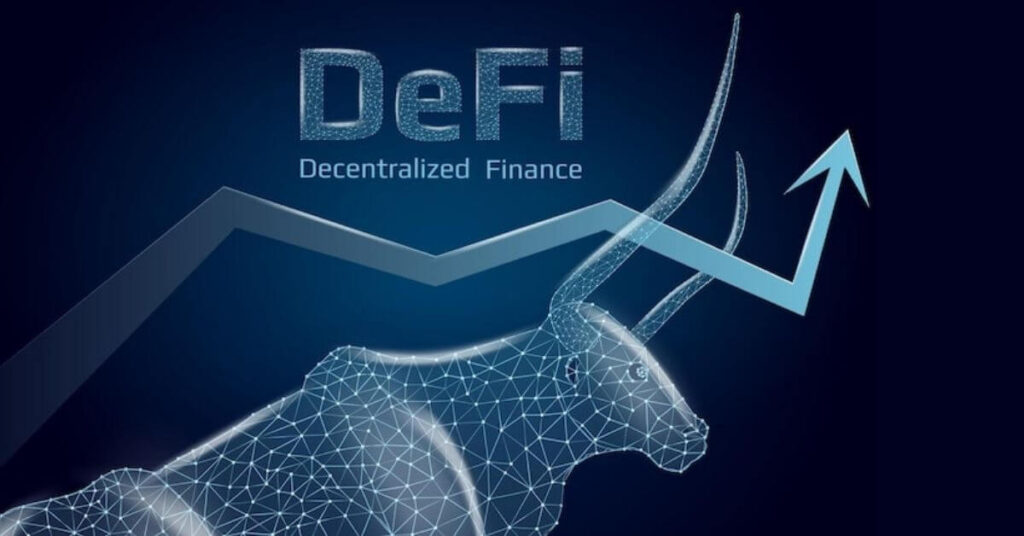Most people associate the future of finance with online banking, mobile payments, and other groundbreaking technologies. But decentralization also holds many possibilities. Technology has played a role in the progress of many sectors, and the financial one makes no exception. Fintech is now transforming the future of finance, creating many opportunities to promote economic development and build efficient financial services.
Decentralized Finance or DeFi significantly impacts Fintech because it gives individuals more transparency and control over their finances. Since its inception, DeFi has caught the attention of influencers, key opinion leaders, and investors, and many participants in the financial space believe it has the potential to redefine the future of the financial industry.
What is DeFi?
Table of Contents
DeFi stands for decentralized finance and is a surging technology that reshapes financial services by using blockchain technologies like smart contracts. Like traditional banking, DeFi enables users to perform different financial transactions like lending, transfers, trading, savings or investing. However, with DeFi, consumers can access these financial facilities without an intermediary. The DeFi ecosystem eliminates the need for an exchange, brokerage or financial institution.
As there isn’t any central authority, everyone involved can see the transactions, which translates into more accountability and transparency. Plus, DeFi applications are faster and more flexible than conventional centralized systems, and users have control over their funds, giving them the freedom to choose how they want to use their money. While DeFi involves some risks, its benefits make it an appealing alternative to the traditional system.
Benefits of DeFi
Individuals are optimistic about DeFi and its potential to reshape the traditional financial landscape, and this is due to its incredible benefits. The DeFi space exceeds traditional norms because it offers fast and secure transaction options. It eliminates the need to visit a bank to perform transactions and protects investors’ assets from bad actors. Moreover, DeFi removes intermediaries in borrowing and lending, making the process straightforward.
DeFi also provides the opportunity to earn yields, which is one of its most significant benefits. These options are yield farming, staking, trading, and liquidity mining. In the traditional financial system, dishonesty has always been a problem, as highlighted by the 2008 financial crisis, which sparked the Great Recession. DeFi provides more trust and transparency because its applications rely on blockchain technology, and the transactions are all public and available for future review. Most banks have a regular schedule of eight working hours, which can be pretty inconvenient if you need to transfer money urgently. However, in the DeFi space, third-party approvals aren’t necessary, and the network is available 24/7, meaning that you can perform transactions whenever you want. As long as you have a computing device and an Internet connection, you can easily access DeFi services.
Pitfalls of DeFi
While there’s optimism around DeFi development, it’s important to remember that this blockchain ecosystem is still in its early stages. There are concerns that DeFi protocols may be used for illicit purposes, and financial regulators haven’t yet taken the necessary steps to address the issues that may arise with the increasing usage of DeFi. As DeFi’s protocols evolve, it’s necessary to develop robust governance mechanisms to adapt to changing conditions.
Since cryptocurrencies are volatile, there is always a risk of losing money. This is why investors must act strategically all the time. Even if they choose a top cryptocurrency like Bitcoin, they can’t act based on emotions or make quick decisions. They have to come up with a plan, assess the risks, and check the Bitcoin price before investing. The same rule applies when participating in yielding activities in the DeFi market. This is why investors must educate themselves on digital currency facts as much as possible and be aware of the risks they expose themselves to. These challenges are significant, but so are the rewards, as DeFi is a crucial step in achieving financial inclusion.
What does the future of DeFi hold?
Disruption in the financial sector isn’t likely to go anywhere, and this is all due to how fast technology develops. Navigating this fast pace requires open-mindedness and big-picture thinking. Let’s take blockchain as an example. While banks were skeptical about adopting it in the beginning, now they invest not only in crypto but also in blockchain-related enterprises. The same is likely to happen with DeFi. Traditional financial institutions slowly realize that DeFi isn’t a fad, and they are open to the idea of implementing this technology into their current frameworks. One such example is ING Bank, which has concluded that the financial sector can benefit from the collaboration between centralized and decentralized financial services. But this collaboration requires centralized financial institutions to be open to innovation and actively participate in developing regulations to maintain DeFi’s advantages.
Moreover, legacy financial institutions can also start providing DeFi services to the underbanked and unbanked. Making the blockchain ecosystem more accessible to consumers via their banking services could also help eliminate the finance gap of MSMEs. Fusing the blockchain principles of DeFi with the global financial architecture can result in significant benefits like faster international transactions and the possibility to use money more effectively. The modern landscape has changed the way consumers behave, so it’s paramount for financial institutions also to evolve. They must always put customers at the forefront and lay the foundation to provide flexible and customized offerings. DeFi innovation is filled with opportunities and can help enhance customers’ experience. Thus, DeFi is a way to future-proof centralized banking rather than removing it.
FinTech, banks and anyone who wants to get ahead of the curve can benefit significantly from this emerging trend, as DeFi protocols can quickly deploy innovative and unique services and products. The best news? Much of the tech created within this space happens at the middleware and infrastructure level, meaning that organizations and individuals can build valuable applications for specific use cases and do it quickly. This is why the DeFi space has experienced significant growth in a short time – developers can sometimes launch a product in only a few days. While this isn’t something enterprises are ready for yet, it’s a potential opportunity for the future.
Also Read, DeFi Development- The Future Of Trading Assets!
The bottom line
DeFi has experienced significant growth in recent years, and no one can deny its benefits. After all, it provides freedom and many possibilities. So, its future is indeed promising and could help the financial sector flourish.




